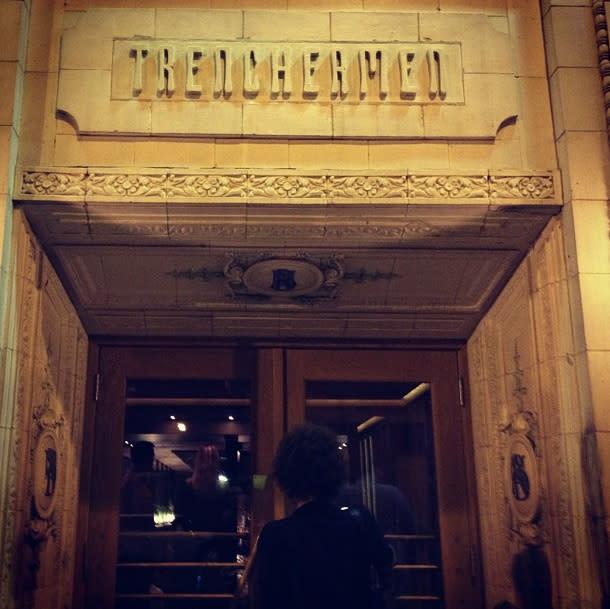Instagram Explains Itself, Basically Confirms the Fear That I Had
Instagram is providing a peek into the future of advertising. Let's see if you like it.

An Instagram of a restaurant that I would happily advertise.
When Instagram changed its terms of service, I envisioned a scenario where the company would use my photos near some place to advertise that place to my friends. Today, in response to some users' negative responses, co-founder Kevin Systrom put out this vision for his company's future business model:
How is this different from my scenario? Well, in Systrom's scenario, you've followed the brand explicitly. In mine, they've extracted your "implicit" fandom. But in both cases, your information will be used to help sell your friends on a business.
And I admit, that is a big difference.
On the other hand, what is to stop Instagram from advancing from their scenario to mine? Precisely nothing, as the terms of service lay out so nicely:
If all they're after is profile photos, then why specifically reserve the right to photos and associated metadata?
Take this scenario: You go out on a date and take a photo in front of a restaurant. Instagram extracts the restaurant name (say, Hard Rock Cafe) and uses that information and/or photograph to sell that place to your Instagram followers who open up the app when they are near that location.
Our business editor, Derek Thompson, when I laid out this scenario, said to me, "That is really assuming a lot about the technology and projecting way down the line."
But I don't think it is. After all, it's easy to match up location data with places that you go. And even if you scrub the location data, for many brands, it's possible to do machine vision on their logos. This is what the Google Maps VP told me about this very topic (emphasis mine):
Granted, Google is Google. But Instagram is Facebook, no? Are we really betting that they can't come up "a semantic understanding of all the pixels we've acquired"? Of course, the we in McClendon's quote with Google, whereas the we in my reformulation is Instagram's users. And that's the rub.
Keep in mind, too, that Facebook uses the contents of your messages to sell you advertising. If you mention you got engaged in wall posts, BOOM, wedding service ads. They even have to have rules, internally, about how long they should allow people to target those who have talked about engagements. This is the road that Instagram is starting down.
There are ways that Instagram could roll out a business model without doing this kind of stuff. Users could pay (or even just pay to opt out), as I suggested yesterday. Wired's Mat Honan laid out a few more options:
To which I say, yeah!
But also, even within the advertising scenario that Systrom is laying out, Instagram could make things a little better for its users. The terms of service could simply take out that little claim on your "photos (along with any associated metadata)." Honestly, you take that out, and I'm feeling OK with the rest of it. Use my likeness, use my actions following brands, fine. But leave the actual contents of my content out of it.
And maybe they will. We'll have to wait and see what the actual changes look like, but Systrom did add in his note to users, "The language we proposed also raised question about whether your photos can be part of an advertisement. We do not have plans for anything like this and because of that we're going to remove the language that raised the question."
More From The Atlantic

 Yahoo Finance
Yahoo Finance 